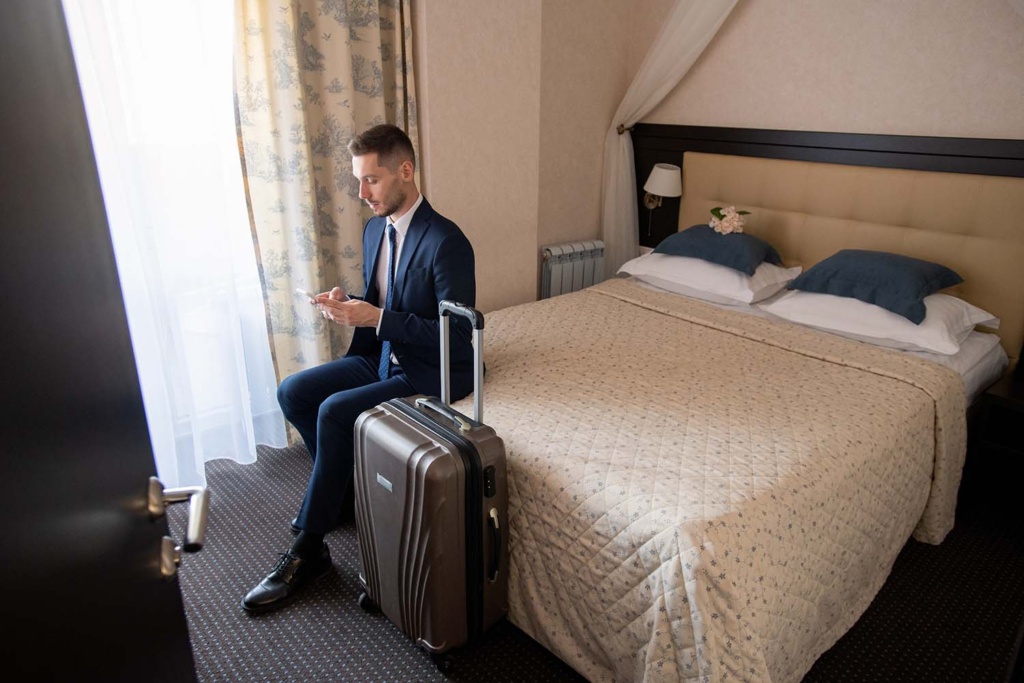When it comes to booking travel accommodations, growing in popularity over traditional hotels are extended stay establishments. These types of accommodations appeal to those needing a place to stay for longer periods. Because their guests generally spend more time at the facility than traditional hotel guests, extended stay options provide a different set of amenities and services to make that longer stay as comfortable as possible. In the past, most people thought of these types of properties as catering to laborers spending days, weeks, or months on a job away from home. While that type of guest certainly still exists, extended stay facilities are now used by a variety of guests – both for business and leisure travel.

Business Travelers
For those spending a week or more in a different city for work, extended stay options are often preferred. The reasoning behind this is that these types of accommodations often provide more of a home-like atmosphere that business travelers often crave while traveling. One of the biggest benefits of an extended stay room is the availability of a kitchen or kitchenette. Consistently dining out at restaurants can be fun at first, but having the option to cook and eat in your room is often very appealing. This is especially true for those business travelers whose company doesn’t provide reimbursement for meals. Restaurant meals add up, so guests can save a lot of money cooking some meals “at home.”
The term “business traveler” is broad, and groups not often thought of under this umbrella are travel nurses and other temporary medical personnel. Often, contracts in these types of roles last for a few months or longer. In some cases, short-term rentals might be an option. But, extended stay accommodations are very popular as well. Often, these establishments offer lower rates than short-term rentals or AirBnbs. Because nurses often receive a housing stipend during their contract, saving money on “rent” may easily mean more money in their pocket from stipend leftovers.

Families Mid-Relocation
With the housing market hot as ever right now, homes are listed and sold in a matter of days. In a calmer market, buyers and sellers often negotiate closing dates based on the needs of both parties. Doing so meant households could often move into their new home directly from their current home. However, home sales close as quickly as possible in many cases today, with contingencies almost non-existent. When this happens, individuals and families who still need to find a new place to live or must wait until they close on their next home need accommodation. Because of this, they often choose to store their belongings and stay in an extended stay option during that time.
The same dilemma applies to those relocating to a new city or state who haven’t yet found a home to purchase or lease. During that search time, extended stay accommodations are the perfect option to avoid trying to find a short-term lease or pay premium prices for a long stay in a traditional hotel.
Remote Workers “Testing” Out a New Location
Over the past two years, the amount of people able to work remotely has increased exponentially. For some, this arrangement was a temporary solution. Others plan to continue working remotely for the foreseeable future. Remote work offers flexibility when it comes to location. So, many individuals and families now can viably move cities or states if they wish. While moving for a role or to be closer to family means location is already set, those with open options often like to visit several places before deciding on a place to set up their new home.
Extended stay accommodations allow for remote workers to get the feel of a new place without committing to signing a lease or purchasing a home. If after a week or two, they decide they aren’t set on the location, they can easily travel to their next destination to explore options there.
Hospitality Staff Needed to Provide Extended Stay Accommodation
Like any hospitality establishment, extended stay accommodations require a team of professionals to keep it functioning and achieve that high guest satisfaction all businesses seek. While the setup of an extended stay facility differs from that of a traditional hotel, the roles available are relatively similar. Often, extended stay rooms aren’t cleaned daily as is the case with normal hotel rooms. However, that doesn’t mean housekeeping is any less busy at one of these accommodations. The housekeeping team is not only responsible for cleaning rooms or suites between guest visits – but they are also charged with keeping common areas such as the pool or business suite tidy as well. If coin laundry facilities are not available on-site, extended stay accommodations also often provide laundry services for their guests.
In addition to housekeeping, extended stay facilities require reception and guest services employees. While the frequency of check-ins and check-outs is far less in these establishments, guests still need to have someone available should any questions or issues arise.
An experienced management professional or team keeps the wheels in motion, consistently checking it with relevant team members in each function of the establishment to ensure duties are being performed at a high level and addressing issues as they arise.
Securing one of these roles in hospitality requires the ability to work as part of a team, perform job requirements at a high level, and have a mindset that puts guest satisfaction as a top priority. There are loads of opportunities to enter the hospitality industry currently – in fact, we keep an updated database of opportunities that span a range of locations and establishments. Take a look at what’s available now, and you may land that next role in the industry sooner than you think!


